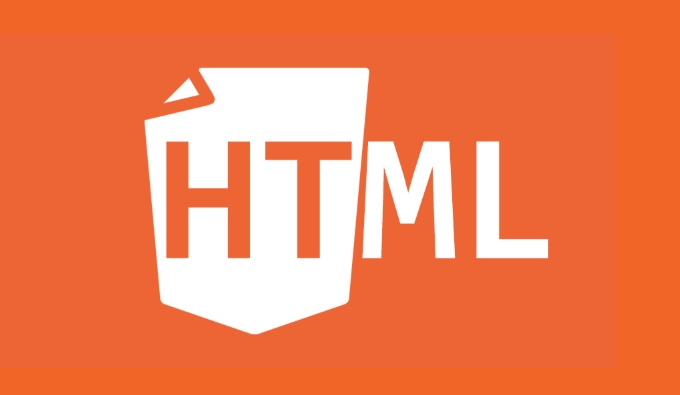How to use the style html attributes for inline CSS?
It is actually very simple to write inline styles using HTML's style attribute. Just add style="..." to the tag and then write CSS rules in it. 1. The basic writing method is a CSS style with the attribute value in the form of a string. Each style is separated by a semicolon. The format is the attribute name: attribute value, for example:
This paragraph of text is red. Note that the entire style string should be wrapped in double quotes. A semicolon should be added after each CSS attribute. The attribute name is standard writing method of CSS; 2. Applicable scenarios for inline styles include dynamic style control, email template development and rapid debugging. For example, if the picture is displayed in the center, you can write it as  ; 3. Several pitfalls that need to be avoided include high priority but difficult to maintain, many code repetitions, and special character escape problems. Common errors include the camel of the attribute name, forgetting to add colons or using Chinese punctuation; 4. Compared with class, the style attributes have poor maintenance, low reusability, and convenient dynamic control, while the class CSS file has good maintenance, high reusability, and slightly complex dynamic control. Therefore, unless there is a clear reason, try to use style as little as possible, but use class to manage styles through class. Mastering the correct way to use can help you save a lot of trouble when the right time.
; 3. Several pitfalls that need to be avoided include high priority but difficult to maintain, many code repetitions, and special character escape problems. Common errors include the camel of the attribute name, forgetting to add colons or using Chinese punctuation; 4. Compared with class, the style attributes have poor maintenance, low reusability, and convenient dynamic control, while the class CSS file has good maintenance, high reusability, and slightly complex dynamic control. Therefore, unless there is a clear reason, try to use style as little as possible, but use class to manage styles through class. Mastering the correct way to use can help you save a lot of trouble when the right time.

Directly answer the title question:
Want to write inline styles using HTML's style attribute? In fact, it is very simple. Just add style="..." to the tag and then write CSS rules in it. However, how to write it easily and without making any mistakes, there are still some details to pay attention to.

1. Basic writing method: attribute value is a CSS style string
The HTML style attribute accepts a string CSS style rule. Each style is separated by a semicolon, and the format is属性名: 属性值. For example:

<p style="max-width:90%">This paragraph is red</p>
- Note that you should wrap the entire style string in double quotes.
- Each CSS attribute needs to be followed by a semicolon (although the last one can be omitted, it is recommended to add consistency).
- Property names are written in CSS, such as
font-sizeinstead of camel or underscore.
2. Applicable scenarios for inline styles
Although it is now recommended to write styles in external CSS files, style attribute also has its use:
- Dynamic style control : It is very convenient to directly modify the style of an element with JavaScript.
- Mail template development : Many email clients have limited support for CSS, and the inline style is more stable.
- Quick debugging : Temporarily test a certain style effect, and do not want to move external files.
For example, if you just want a certain image to be displayed in the center and don’t want to add a class to it, you can write it like this:
<img src="/static/imghw/default1.png" data-src="photo.jpg" class="lazy" style="max-width:90%" alt="How to use the style html attributes for inline CSS?" >
3. Several pitfalls to avoid
Although convenient, style attribute also has some usage restrictions and common errors:
- High priority but difficult to maintain : because the priority of inline styles is higher than that of most CSS, it is easy to overwrite other styles, and it is troublesome to modify later.
- The code is repeated many times : if multiple elements require the same style, each of them will lose its reusability.
- Pay attention to special character escape : If you use JavaScript to dynamically generate style strings, remember to process spaces, quotes, etc.
Some common error examples:
<!-- Error: The attribute name is written as camel--> <div style="fontSize: 20px;"></div> <!-- Error: Forgot to add a colon --> <div style="color red;"></div> <!-- Error: Chinese punctuation was used--> <div style="color:red;"></div>
4. A simple comparison with class
| characteristic | style attributes | class CSS file |
|---|---|---|
| Maintenance | Difference | good |
| Reusability | Low | high |
| Dynamic control | Convenient | A little more complicated |
| Loading performance | Does not affect CSS files | Possible increase in requests |
So unless there is a clear reason, try to use style as little as possible, and instead manage styles through class.
Basically that's it. Inline styles are not complicated, but they are easily abused or ignored in actual projects. Mastering the correct way to use can help you save a lot of trouble when the right time.
The above is the detailed content of How to use the style html attributes for inline CSS?. For more information, please follow other related articles on the PHP Chinese website!

Hot AI Tools

Undress AI Tool
Undress images for free

Undresser.AI Undress
AI-powered app for creating realistic nude photos

AI Clothes Remover
Online AI tool for removing clothes from photos.

Clothoff.io
AI clothes remover

Video Face Swap
Swap faces in any video effortlessly with our completely free AI face swap tool!

Hot Article

Hot Tools

Notepad++7.3.1
Easy-to-use and free code editor

SublimeText3 Chinese version
Chinese version, very easy to use

Zend Studio 13.0.1
Powerful PHP integrated development environment

Dreamweaver CS6
Visual web development tools

SublimeText3 Mac version
God-level code editing software (SublimeText3)

Hot Topics
 1795
1795
 16
16
 1740
1740
 56
56
 1593
1593
 29
29
 1475
1475
 72
72
 267
267
 587
587
 Applying Semantic Structure with article, section, and aside in HTML
Jul 05, 2025 am 02:03 AM
Applying Semantic Structure with article, section, and aside in HTML
Jul 05, 2025 am 02:03 AM
The rational use of semantic tags in HTML can improve page structure clarity, accessibility and SEO effects. 1. Used for independent content blocks, such as blog posts or comments, it must be self-contained; 2. Used for classification related content, usually including titles, and is suitable for different modules of the page; 3. Used for auxiliary information related to the main content but not core, such as sidebar recommendations or author profiles. In actual development, labels should be combined and other, avoid excessive nesting, keep the structure simple, and verify the rationality of the structure through developer tools.
 What is the loading='lazy' one of the html attributes and how does it improve page performance?
Jul 01, 2025 am 01:33 AM
What is the loading='lazy' one of the html attributes and how does it improve page performance?
Jul 01, 2025 am 01:33 AM
loading="lazy" is an HTML attribute for and which enables the browser's native lazy loading function to improve page performance. 1. It delays loading non-first-screen resources, reduces initial loading time, saves bandwidth and server requests; 2. It is suitable for large amounts of pictures or embedded content in long pages; 3. It is not suitable for first-screen images, small icons, or lazy loading using JavaScript; 4. It is necessary to cooperate with optimization measures such as setting sizes and compressing files to avoid layout offsets and ensure compatibility. When using it, you should test the scrolling experience and weigh the user experience.
 What are best practices for writing valid and well-formed HTML code?
Jul 01, 2025 am 01:32 AM
What are best practices for writing valid and well-formed HTML code?
Jul 01, 2025 am 01:32 AM
When writing legal and neat HTML, you need to pay attention to clear structure, correct semantics and standardized format. 1. Use the correct document type declaration to ensure that the browser parses according to the HTML5 standard; 2. Keep the tag closed and reasonably nested to avoid forgetting closed or wrong nesting elements; 3. Use semantic tags such as, etc. to improve accessibility and SEO; 4. The attribute value is always wrapped in quotes, and single or double quotes are used uniformly. Boolean attributes only need to exist, and the class name should be meaningful and avoid redundant attributes.
 What are the essential HTML elements for structuring a webpage?
Jul 03, 2025 am 02:34 AM
What are the essential HTML elements for structuring a webpage?
Jul 03, 2025 am 02:34 AM
The web page structure needs to be supported by core HTML elements. 1. The overall structure of the page is composed of , , which is the root element, which stores meta information and displays the content; 2. The content organization relies on title (-), paragraph () and block tags (such as ,) to improve organizational structure and SEO; 3. Navigation is implemented through and implemented, commonly used organizations are linked and supplemented with aria-current attribute to enhance accessibility; 4. Form interaction involves , , and , to ensure the complete user input and submission functions. Proper use of these elements can improve page clarity, maintenance and search engine optimization.
 How to use the style html attributes for inline CSS?
Jul 01, 2025 am 01:42 AM
How to use the style html attributes for inline CSS?
Jul 01, 2025 am 01:42 AM
It is actually very simple to write inline styles using HTML's style attribute. Just add style="..." to the tag and then write CSS rules in it. 1. The basic writing method is CSS style with the attribute value in the form of a string. Each style is separated by a semicolon. The format is the attribute name: attribute value. For example: this paragraph of text is red. Note that the entire style string should be wrapped in double quotes. Each CSS attribute should be added with a semicolon after it. The attribute name is standard writing method of CSS; 2. Applicable scenarios for inline styles include dynamic style control, email template development and rapid debugging, such as allowing the picture to be displayed in the center to be written; 3. Several pitfalls that need to be avoided include high priority but difficult to maintain, many code repetitions, and special characters.
 How can JavaScript be used to create and manipulate HTML tags?
Jul 01, 2025 am 01:42 AM
How can JavaScript be used to create and manipulate HTML tags?
Jul 01, 2025 am 01:42 AM
JavaScript dynamically creates, modifys, moves and deletes HTML elements through DOM operations. 1. Use document.createElement() to create a new element and add it to the page through appendChild() or insertBefore(); 2. Select existing elements through querySelector() or getElementById(), and modify them using textContent, innerHTML, setAttribute() and other methods; 3. When processing multiple elements through loops, you need to note that querySelectorAll() returns NodeList; 4. Move
 Which html attributes are most important for SEO?
Jul 01, 2025 am 01:44 AM
Which html attributes are most important for SEO?
Jul 01, 2025 am 01:44 AM
ThefourmostimpactfulHTMLattributesforSEOarethetitletag,altattribute,hrefattribute,andmetadescription.1.Thetitletaginthesectioniscrucialasitinformsusersandsearchenginesaboutthepage’scontent,mustbeconcise,keyword-relevant,under60characters,anduniqueper
 What are the integrity and crossorigin html attributes used for when loading scripts or styles from a CDN?
Jul 01, 2025 am 01:39 AM
What are the integrity and crossorigin html attributes used for when loading scripts or styles from a CDN?
Jul 01, 2025 am 01:39 AM
Theintegrityattributeensuresaresourcehasn’tbeenmodifiedbyusingacryptographichash,whilecrossoriginhandlescross-originrequeststoenablepropervalidation.1.Integritychecksthefile’sauthenticityviaSHA-256,SHA-384,orSHA-512hashes,blockingmaliciousorcorrupted






